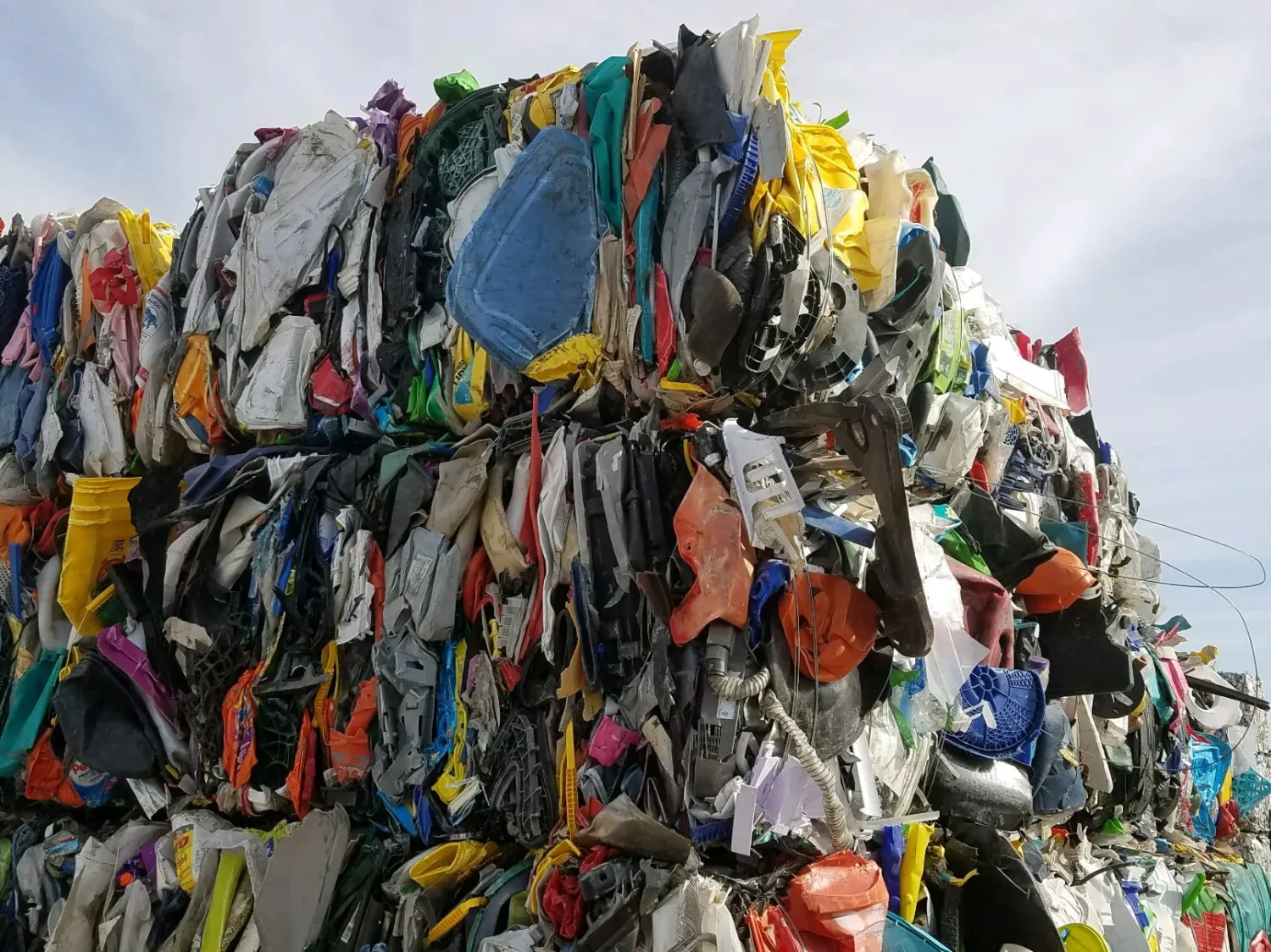Le plastiche rigide, tra cui oggetti come contenitori, bottiglie e beni durevoli, costituiscono una parte significativa dei rifiuti di plastica. Il riciclaggio di questi materiali non solo preserva le risorse, ma riduce anche l'impatto ambientale. Ecco come puoi selezionare la macchina migliore per il riciclaggio delle plastiche rigide:
1. Identifica i tipi di plastica che riciclerai
- HDPE (polietilene ad alta densità): Comunemente utilizzato nelle brocche del latte, nei flaconi dei detersivi e nelle borse della spesa.
- PET (polietilene tereftalato): Si trova nelle bottiglie delle bevande e nei contenitori degli alimenti.
- PP (polipropilene): Utilizzato nei contenitori dello yogurt, nelle cannucce e nei tappi delle bottiglie.
- PVC (cloruro di polivinile): Utilizzato in tubi, rivestimenti e imballaggi.
- ABS (acrilonitrile-butadiene-stirene): Spesso presenti in alloggiamenti elettronici e componenti automobilistici.
Ogni tipo ha proprietà uniche che potrebbero richiedere tecnologie di riciclaggio specifiche. Ad esempio, l'HDPE può essere riciclato utilizzando uno shredder seguito da un estrusore, mentre il PET potrebbe richiedere ulteriori passaggi come il lavaggio per rimuovere i residui.
2. Efficienza e capacità della macchina
- Capacità di produzione: Determina quanta plastica devi processare ogni giorno. Le macchine sono disponibili in varie dimensioni, con capacità che vanno da 80 kg/ora a oltre 1000 kg/ora.
- Efficienza energetica: Cercate macchine con funzionalità di risparmio energetico. Le attrezzature moderne spesso includono motori o sistemi ottimizzati per ridurre il consumo energetico, il che è fondamentale per la gestione dei costi e la sostenibilità.
3. Durata e manutenzione
- Qualità del materiale: L'acciaio di alta qualità o altri materiali durevoli assicurano longevità. Le macchine robuste possono sopportare i rigori del funzionamento continuo.
- Facilità di manutenzione: Le macchine con facile accesso per la pulizia e la sostituzione dei pezzi riducono i tempi di fermo. Cerca modelli che offrono procedure di manutenzione semplici.
4. Tecnologia e caratteristiche
- Selezione e pulizia: Sistemi di smistamento efficienti, come i selezionatori ottici o i separatori sink-float, possono migliorare significativamente la qualità del materiale riciclato. Le linee di lavaggio sono essenziali per rimuovere i contaminanti, come evidenziato dalle offerte di Genius Machinery.
- Automazione: Funzionalità quali l'alimentazione automatica, il monitoraggio in tempo reale e i meccanismi di autopulizia possono aumentare notevolmente la produttività e ridurre i costi di manodopera.
- Sistemi di filtrazione: Come discusso nel contesto del Repro-Flex di POLYSTAR, una filtrazione efficace rimuove le impurità, il che è essenziale per produrre pellet di alta qualità.
5. Sicurezza e conformità ambientale
- Caratteristiche di sicurezza: Assicurarsi che la macchina sia dotata di interblocchi di sicurezza, arresti di emergenza e involucri protettivi per salvaguardare la sicurezza dei lavoratori.
- Impatto ambientale: Sono preferibili macchine con sistemi idrici a circuito chiuso o progettate per ridurre al minimo gli sprechi. Ciò non solo preserva le risorse, ma è anche in linea con la conformità normativa.
6. Reputazione e supporto del marchio
- Vecoplan, Rumtoo, ERBOLD: Questi marchi sono riconosciuti per la loro competenza nei macchinari per il riciclaggio della plastica. Considerate marchi con un forte supporto di assistenza per la risoluzione dei problemi e la manutenzione.
- Recensioni dei clienti e casi di studio: Cerca feedback o storie di successo simili alle dimensioni della tua attività o al tipo di plastica lavorata.
7. Costo vs. ROI
- Investimento iniziale: Anche se le macchine più economiche potrebbero essere allettanti, bisogna considerare i risparmi a lungo termine derivanti dall'efficienza e dalla qualità del risultato.
- Costi operativi: Le macchine che risparmiano energia, manodopera e manutenzione offriranno un ROI migliore nel tempo.
8. Formazione e usabilità
- Formazione degli utenti: Le macchine devono essere dotate di una formazione completa per gli operatori, per garantirne un utilizzo efficiente e sicuro.
- Interfaccia intuitiva: Le macchine moderne con comandi intuitivi possono ridurre notevolmente la curva di apprendimento.
Incorporare le migliori pratiche
- Manutenzione ordinaria: Rispettare un programma di manutenzione è fondamentale per la longevità e l'efficienza della macchina.
- Formazione del personale: Una formazione continua sulle migliori pratiche di sicurezza e operative garantisce operazioni fluide e conformi.
- Ottimizzazione dell'automazione: Sfrutta tutte le funzionalità di automazione per aumentare la produttività e ridurre l'intervento manuale.
Selezionando una macchina per il riciclaggio di plastica rigida tenendo a mente queste considerazioni, le aziende possono gestire efficacemente i propri rifiuti di plastica, trasformandoli in una risorsa preziosa e riducendo al minimo l'impatto ambientale. Questa guida sfrutta le intuizioni dei produttori di attrezzature per il riciclaggio della plastica come CP Manufacturing e l'esperienza pratica di pionieri come Rumtoo, assicurandoti di scegliere una macchina che sia in linea sia con le tue esigenze operative sia con i tuoi obiettivi ambientali.



